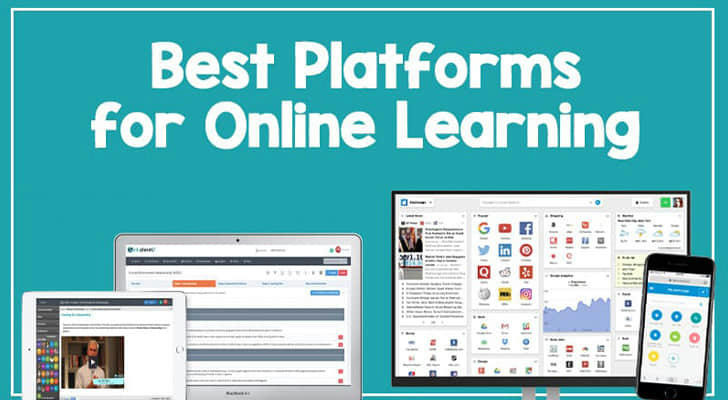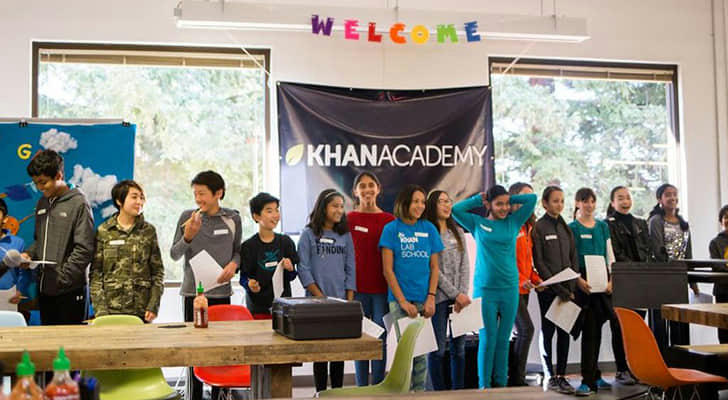Best Online Learning Platforms for Free

Imagine being able to learn coding, master Spanish, or improve your stats skills without spending any money. Sounds amazing, right? One of the biggest perks of the Internet is the sheer amount of information available to us. This wealth of knowledge can help you upskill and increase your chances of landing a great job.
No matter your age, the internet is a treasure trove of educational resources, many of which are completely free. If you're ready to explore, here are 10 fantastic online programs to kickstart your learning journey.
1. Skillshare
Skillshare is a slick learning platform boasting over 34,000 courses. The video content is top-notch, featuring big-name instructors from media, design, art, tech, leadership, and entrepreneurship. Skillshare stands out by offering hands-on projects and community learning, which keeps you motivated by connecting you with like-minded learners. You can access a selection of free courses during their premium subscription's free trial.
2. Coursera
Coursera.org is a major player in the world of massive open online courses (MOOCs). By partnering with universities and organizations globally, it offers a vast range of in-depth courses across various subjects. Some courses even provide certificates upon completion, adding value to your learning. Coursera is perfect for those who prefer a structured, classroom-like environment at home.
3. LinkedIn Learning

LinkedIn Learning is a goldmine for job seekers and professionals with over 22,000 courses taught by experts. The first month is free, making it a great opportunity to learn new skills. The courses, ranging from beginner to advanced, are high-quality and can be added to your LinkedIn profile, showcasing your dedication to potential employers. Plus, their structured Learning Paths can help you transition into a new career.
4. Skill Success
Skill Success offers more than 3,000 video-based courses aimed at career advancement. Topics range from business and technology to career development, with most content geared toward beginners. The first 14 days are free, providing a quick introduction to various subjects. This platform is also known for its creative courses, like piano and photography.
5. edX
edX is another excellent option for free online education, featuring over 4,000 courses with instructors, discussion boards, quizzes, and more. It excels in math, science, and engineering, offering top-notch information from multiple schools. Whether you're into these fields or just exploring, edX has something valuable to offer.
6. Khan Academy

Khan Academy is completely free and partners with many post-secondary schools. It offers a well-organized interface and curates a wealth of courses from around the web. The lectures are short, presenting small chunks of information that build on each other, making complex subjects easier to grasp over time.
7. Udemy
Udemy provides courses taught by leading experts, similar to Coursera, but also allows users to build custom courses from various lessons. Working with top professors and schools, Udemy blends a customizable platform with a focus on quality content. However, it offers a mix of free and paid courses.
8. iTunesU Free Courses
iTunesU is incredibly convenient for Apple users, integrating seamlessly with iPods and other Apple devices. On iPad, iPhone, or iPod touch, users can download the iTunesU app to access courses with full lectures, note-taking capabilities, and assignments. Courses often include a mix of free podcasts or videos and paid content.
9. MIT OpenCourseWare

MIT OpenCourseWare is a gem for anyone interested in science, computer science, and engineering. It provides a wealth of materials from actual MIT courses, including lectures, notes, homework, and sample tests. As one of the top universities in these fields, MIT's free resources are invaluable.
10. Codecademy
Codecademy focuses exclusively on teaching coding. It offers interactive lessons in HTML, CSS, JavaScript, jQuery, Python, Ruby, and PHP, all within your browser. Codecademy features a dashboard to track your progress and organizes lessons into comprehensive modules, making it easy to learn a whole programming language.
Bonus: More Free Online Course Sites
If you want even more options to keep your brain engaged, check out these additional sites offering free online courses:
•TED-Ed: Watch a collection of educational videos, all under ten minutes.
•Alison: Access resources from top universities.
•Academic Earth: Start coursework in a variety of subjects.
•Class Central: Discover free online courses from numerous providers.
•Milk Street Cooking School: Learn to cook with their online lessons.
•Google Arts & Culture: Visit virtual museum tours.
•Open Culture: Explore 1,700 lectures, videos, and podcasts from universities worldwide.
•Stanford Online: Take world-class courses, some of which are free.
How effective is online learning?
A study by the National Research University Higher School of Economics found online learning to be as effective as traditional classroom learning. Students in the study who learned online performed just as well, if not better, on assessments compared to those who learned in person.
What are the pros and cons of online learning?

Pros:
Flexibility: Study from anywhere, at your own pace.
Affordability: Often cheaper than traditional college, eliminating costs like room and board.
Individualized Learning: Learn in a way that suits you best, with all materials readily accessible online.
Cons:
Less Social Interaction: Limited face-to-face time with instructors and peers.
Distractions: Studying from home requires more self-discipline.
Limited Availability: Not all subjects are offered online.
Do employers value online degrees?
Many employers now recognize online degrees, especially from reputable institutions. Online education has become more common and convenient, making it a viable alternative to traditional degrees. Certain jobs, like those in design, development, or programming, often require specific skills and certifications that online training can provide.
What does a virtual classroom look like?
Virtual classrooms typically include a login screen, discussion space, virtual whiteboard for lectures and materials, and areas for assignments and resources. Interaction may happen through live video meetings or forums, with materials accessible for both teachers and students.
How We Chose These Sites
To pick the best free online education sites, we looked for platforms offering free learning programs, comparing topics, certificate options, and additional resources. This list isn't exhaustive but highlights some of the best options available.
